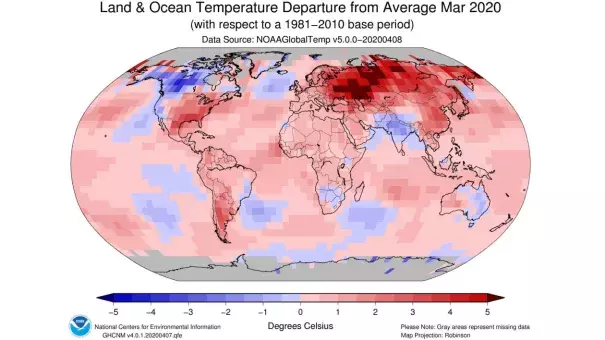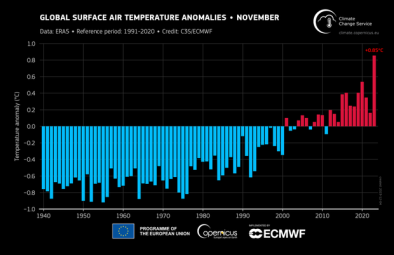March 2020 Was Earth's Second-Warmest March on Record, NOAA Says

Climate Signals Summary: Climate change is increasing temperatures in all seasons and leading to more broken heat records. 2010-2019 was the hottest decade on record, and 2020 is on its way to being one of the five hottest years.
Article Excerpt: March 2020 was Earth's second-warmest March in 141 years of temperature records, NOAA’s National Centers for Environmental Information (NCEI) reported in its monthly summary of global climate.
...
Only February and March 2016, when a strong El Niño was present in the tropical Pacific Ocean, had higher temperature departures than March 2020, NOAA said.
Ultimately, what's most important is not whether a given month is a fraction of a degree warmer or colder. Rather, it's the overall trend, which continues its upward climb since the late 1970s.
March marked the 423rd consecutive month and 44th straight March that global temperatures have been above average in NOAA's database. Earth's five warmest Marches have occurred since 2015, and the 10 warmest have all occurred since 1990.
The most notable warmer-than-average temperatures in March were recorded across the eastern half of the United States, much of Asia and southern South America, where temperatures were 3.6 degrees above average or higher.
...
2020 is likely to rank among the five warmest years on record, according to a statistical analysis published by NOAA/NCEI scientists in the Bulletin of the American Meteorological Society.
Related Content






